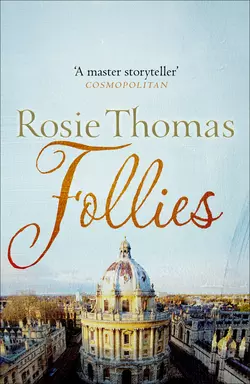Follies

Rosie Thomas
Тип: электронная книга
Жанр: Современные любовные романы
Язык: на английском языке
Стоимость: 625.04 ₽
Статус: В продаже
Издательство: HarperCollins
Дата публикации: 16.04.2024
Отзывы: Пока нет Добавить отзыв
О книге: From the bestselling author of The Kashmir Shawl. Available on ebook for the first time.They were three modern women. They came to Oxford University full of hopes and dreams and would leave forever changed.Helen: shy, quiet and hopelessly in love with Lord Oliver Mortimore, the dazzling, self-destructive blond who lives for fast cars, drink and drugs.Chloe: glamorous and confident, abandoning a high-powered career and broken affair, obsessively drawn to her philandering English professor.Pansy: stunning heiress and aspiring actress, driven to prove she is more than an irresistible magnet to the men who flock to her.Together for one unforgettable year, they would share a lifetime of emotions and a very special friendship…